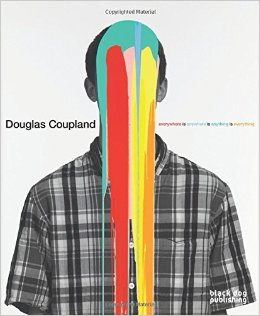I picked up an out of print book of G.K. Chesternoon newspaper essays at the seminary library a while back and came across this gem. It was published in 1922 in Hearst’s International. You can find it online HERE.
Chesterton illustrates man as a supremely needy being – so needy that he alone must sleep in the skin of another, so needy that he alone must pass his food through fire before it can pass through his stomach, so needy that he alone must be propped up by crutches called furniture.
The Anatomy of the Joke, by G.K. Chesterton
There is nothing comic about a falling tree. There is nothing really funny about a falling star. And there is very little amusement to be got out of a falling thunderbolt, unless it knocks over some carefully selected and suitable person; such as a sociologist proving that he can foresee all future eventualities or an astronomer disproving the existence of thunderbolts.
In short, a falling star is not fantastic, but a falling man is, or can be, fantastic. Why? I do not believe the question can be fully answered, for the same reason that I do believe the current answers are wrong; because it lies deep in the mysterious matter of what did really happen when man received or evolved the mind that sunders him from the beasts and birds. But I will throw out a few vague suggestions about the proper direction of inquiry.
Man himself is a joke in the sense of a paradox. That there is something very extraordinary about his position, and therefore presumably about his past, is the clearest sort of common sense. Alone of all creatures he is not self-sufficient, even while he is supreme.
He dare not sleep in his own skin; he cannot simply put his own food into his own stomach. He has to put the latter first into an oven and cover the former first with external and foreign hair; always sleeping in somebody else’s skin. In one sense he is a cripple amongst the creatures; he is at once imperfect and artificial like a monster with two glass eyes and two wooden legs. He is propped upon crutches that are called furniture; he is patched and protected with bandages that are called clothes.
Properly visualized, he is grotesque, not when he sits on a hat, but when he allows a hat to sit on him. Properly understood, he is not so ridiculous when he sits on a hat as when he sits on a chair; for then he is acting like some monstrous sort of crippled quadruped and equipping himself with four wooden legs. Why the lord of creation is a cripple in this queer sense is an open question; but some maintain that it is because he once had a bad fall.
Now this humorous human quality can, as a matter of fact, be much more easily connected with this old idea of a fall of man than with the current and conventional ideas about the evolution of man. To begin with, the explanation, whatever it is, must be some thing more or less peculiar to man.
Those who have heard the hyena laugh will not admit that his laughter would add much to the mirth of a happy fireside. The fantastic shapes of the other animals are only fantastic as mirrored in the mind of man. In this sense we may say that the camel’s hump and the rhinoceros’ horn are human secrets and even human possessions; and that we know the pelican and the penguin better than they know themselves.
To all appearance the animal world is unconscious of the grotesque; and considered in the light of mere animal evolution, there is hardly anything grotesque about their innocence.
But let us entertain, merely as a hypothesis and without any reference to doctrinal details or applications, some such supposition as this. That at some time in the unknowable past the creature that has become man received some sort of shock or revelation, by the expansion of his own or the visitation of other psychical forces, whereby he gained a sense of a separate and more divine destiny; that he afterwards lost this direct vision and lived on a lower plane, so that he was haunted with a curious sensation that the accidents of this world are in a sense alien to him, while their very inappropriateness is mixed with some memories of happiness and some hope of recovery. To put it shortly, he is in a sense pleased to be the only creature who is in the wrong place, while all other creatures are in the right one.
It seems to me that the problem of humour presents one primary condition and difficulty which divides it from most others. It seems to me quite clear that the process which ends in a joke necessarily begins with a certain idea of dignity. The dignity is in some way implied beforehand. Beauty or knowledge might conceivably break on a person without previous implications. But incongruity cannot break on him without the pre-existence or pre-supposition of something with which it fails to be congruous. So far as one can see, that pre-supposition is of something erect and, as it were, respectable about the station or stature of humanity.
We think the projection of an elephant’s trunk grotesque because it is near enough to being a caricature of a man’s nose. We do not think the projection of a precipice grotesque because it is not near enough to imply any comparison with humanity at all.
The more this dark matter is independently considered, the more, I think, we shall find this human standard, as of an erect figure, dominating it like a statue. All depends on this dim or fantastic tracing everywhere of the image of man; and I believe the key is somewhere in that mysterious oracle which identified it with the image of God.

